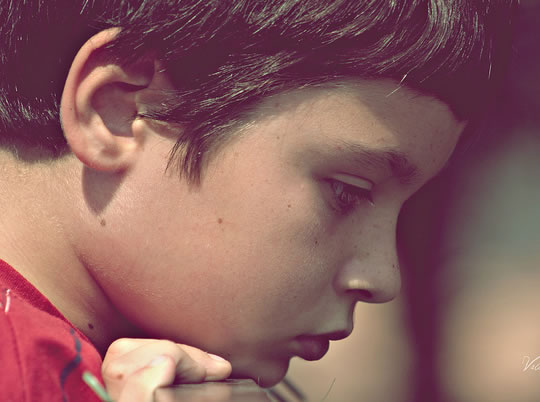
Some children are at a higher risk of developing psychopathy.
Boys with psychopathic tendencies report less desire to fit in with the laughter of other children, research finds.
Unlike most children, and adults, boys at risk of psychopathy do not find laughter contagious.
Brain scans also showed they had a lower response to the laughter of others.
Professor Essi Viding, study author, said:
“It is not appropriate to label children psychopaths.
Psychopathy is an adult personality disorder.
However, we do know from longitudinal research that there are certain children who are at a higher risk for developing psychopathy, and we screened for those features that indicate that risk.”
Being callous and unemotional is linked to developing psychopathy in later life.
The children who had this trait, along with disruptive behaviour, were those that reported less desire to join in with the laughter of others.
Their brains also worked in a different way, the scans revealed.
There was reduced brain activity in areas linked to joining in with others.
Professor Viding said that children at risk of developing psychopathy experience the world in a different way to the rest of us:
“Those social cues that automatically give us pleasure or alert us to someone’s distress do not register in the same way for these children.
That does not mean that these children are destined to become antisocial or dangerous; rather, these findings shed new light on why they often make different choices from their peers.
We are only now beginning to develop an understanding of how the processes underlying prosocial behaviour might differ in these children.
Such understanding is essential if we are to improve current approaches to treatment for affected children and their families who need our help and support.”
The study was published in the journal Current Biology (O’Nions et al., 2017).










